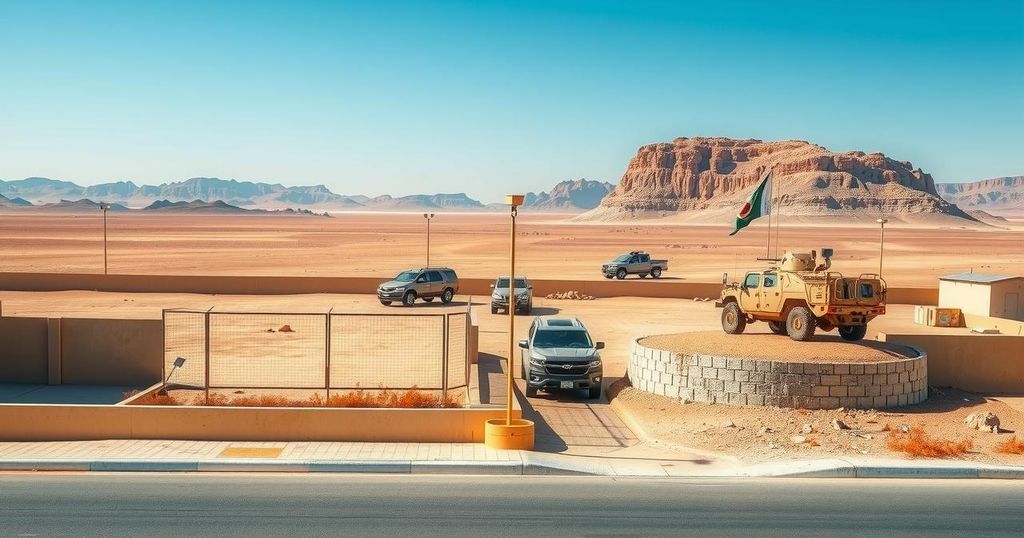Global news
AFRICA, BRIAN MURPHY, DEPARTMENT OF HOMELAND, DEPARTMENT OF HOMELAND SECURITY, DEPORTATION, HUMAN RIGHTS, INTERNATIONAL LAW, JUDICIAL SYSTEM, LEGAL SYSTEM, MURPHY, MYANMAR, NORTH AMERICA, SOCIAL, SOUTH SUDAN, STATE DEPARTMENT, TRUMP, U. S, UNITED STATES, WASHINGTON
Jamal Walker
0 Comments
Court Ruling Halts Deportation of Migrants to South Sudan, Leaving Them in Djibouti
A U.S. District Court has ruled to temporarily hold a group of migrants deported to South Sudan in Djibouti due to concerns about their legal rights and potential mistreatment. The Trump administration opposed the ruling, claiming it obstructed deportation efforts. The situation has drawn attention to the legal processes regarding migrants with violent crime convictions and their rights under international law.
In a recent development, a group of migrants deported from the United States to South Sudan are temporarily held in Djibouti, as ruled by a U.S. District Court. The Trump administration expressed frustration over this situation on May 22, 2025, emphasizing that the migrants had been expelled due to prior violent crime convictions. However, logistical challenges prevented their immediate return to their original countries, leading to their detention at a major U.S. military base in Djibouti.
U.S. District Judge Brian Murphy, located in Boston, intervened when he determined that the Trump administration had violated earlier court instructions. He criticized the insufficient timeframe—stating migrants were not given adequate notice to contest their deportation to South Sudan. Murphy indicated that the decision did not align with the minimum standards set forth by the United Nations Convention Against Torture.
Notably, South Sudan, where the migrants were originally slated to go, has been under a travel advisory issued by the U.S. State Department due to ongoing security issues. In his ruling, Judge Murphy mandated that individuals must receive at least ten days for appeals related to their deportation, and that six of the deportees could present claims of potential torture or mistreatment in South Sudan, with legal support.
The Department of Homeland Security (DHS) must still allow a minimum of 15 days for appealing the expulsion decision, even if they deem the claims unfounded. This ruling was a significant setback for the Trump administration, which had hoped for a swift deportation.
In the wake of the court’s ruling, former President Trump aired his grievances on his social media platform, Truth Social. He condemned Murphy’s actions, portraying him as obstructing justice by allowing what he referred to as “violent criminals” to remain in Djibouti rather than advancing to South Sudan. Trump accused the judicial system of being “out of control,” voicing his discontent.
The White House has identified the eight migrants involved: two from Myanmar, two from Cuba, one from Vietnam, and one each from Laos, Mexico, and South Sudan. In stark contrast, attorneys for the Vietnamese and one Myanmar national reported that their clients were only informed about the deportation just hours prior to the flight’s departure.
A representative from the DHS attempted to clarify the situation by stating that South Sudan is not the ultimate destination for the migrants, suggesting a more complex underlying scenario than originally portrayed. This situation continues to evolve, raising questions about deportation processes and legal protections offered to those facing potential harm in their proposed destination.
In summary, a federal court ruling has temporarily halted the deportation of eight migrants from the U.S. to South Sudan, holding them in Djibouti. The ruling cited insufficient notice and allowed for further appeals under international law. Former President Trump has vocally criticized this decision, highlighting ongoing tensions over immigration policy and judicial authority. As the situation continues, the legal implications of this case deserve close attention.
Original Source: www.thehindu.com




Post Comment